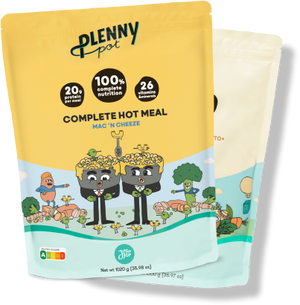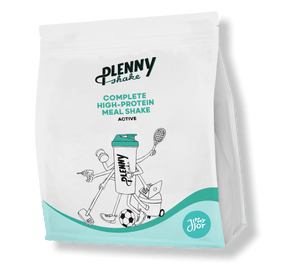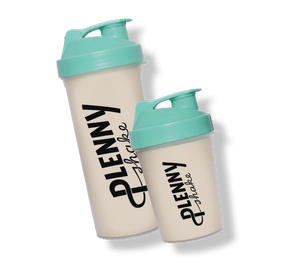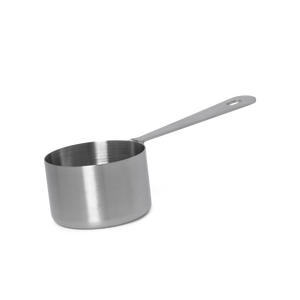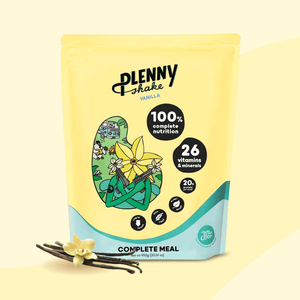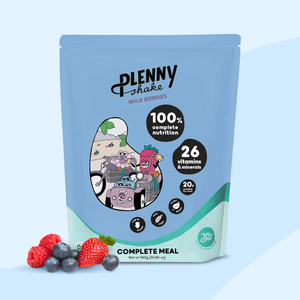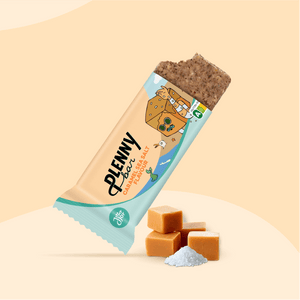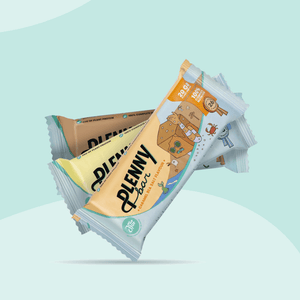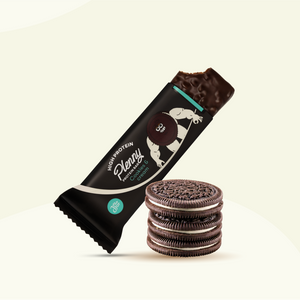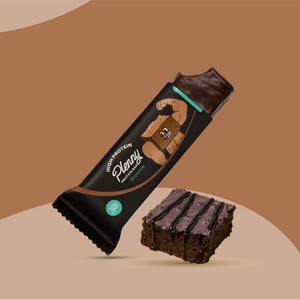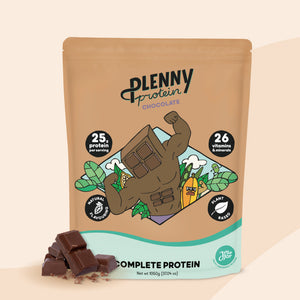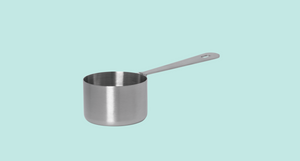Updated on 23/10/2023
Let’s have a heart-to-heart about your heart. To kick us off, we’ll provide you with some information on what a healthy heart looks like, how you can keep your cholesterol levels low, and keep your heart healthy through your lifestyle.
What is a healthy heart?
Did you know your heart will beat about 2.5 billion times over your lifetime? It spends each beating second to supply your body with fuel (oxygen, hormones, compounds and essential cells) and clean up the waste products of your metabolism [1]. Ensuring your heart is healthy essentially ensures your life is healthy (and, hopefully, longer). So how can you achieve this?
Simply said, a healthy heart is an active heart. Leading an active lifestyle already puts your heart in a pretty good spot. In addition, managing your risk for heart disease–an umbrella term for various heart conditions–is vital for living a healthy, long life.

One of these heart diseases includes coronary artery disease (CAD), which is the most common type of heart disease in Europe [2]. A result of CAD is coronary heart disease (CHD), which is the leading cause of heart attacks and deaths worldwide [3]. It’s caused by plaque buildup in the walls of the arteries that supply blood to your heart and other parts of your body. This plaque is made of deposits of cholesterol and other substances in the artery, such as trans fats and saturated fats – read more about the difference between these below. As the plaque builds up, it causes those arteries to narrow over time, which can eventually block your blood flow and bring further complications. [2]
So.. the takeaway? Keep those undesired fats down, and lead an active lifestyle. While we’re not a gym (yet 😉) and can’t help with the latter, we CAN share some insights on how to keep your cholesterol level down, and our Plenny meals can play a role in that. Keep reading!
Fats
Understanding fats is vital to understanding cardiovascular health. While fats usually get a bad rep (sometimes deservedly so), there are also good ones out there!
Unsaturated fats are ‘healthy fats’, as they help reduce cholesterol levels. They come in two main forms; polyunsaturated (omega-3 and omega-6) and monounsaturated (omega-9). Compared to saturated fats, which are solid at room temperature, unsaturated fats are liquid at room temperature. This is also a pretty good way of differentiating them when you’re in doubt. [10]
Saturated fats, on the other hand, are considered the ‘bad fats’, as they have been linked to an increase in cholesterol levels in our blood. These are mainly found in animal products, with the exception of coconut oil, palm oil, and some kinds of margarine. [10]
Trans fats are a type of saturated fat, they are either naturally-occurring in small quantities (in milk and meat products) or created artificially by adding hydrogen to liquid vegetable oils to make them more solid. These trans fats are bad for our health as they raise our bad cholesterol levels, and lower our good cholesterol levels. [11] What’s the difference? Well, keep reading!
What is cholesterol?
Cholesterol is a type of fatty compound produced by the body. Blood cholesterol is important to form:
- Bile acids, these are critical for your digestion as they promote the absorption of dietary fat and fat-soluble vitamins
- Steroid hormones, such as estrogen
- Vitamin D
- Cell membranes

Because it is so necessary, your liver makes cholesterol and even adjusts the amounts it creates based on your typical diet. Cholesterol also comes from the food we eat, particularly animal products.
Furthermore, there are different types of cholesterol, each with distinct functions and roles in the body. The two most common types are low-density lipoprotein (LDL) and high-density lipoprotein (HDL) cholesterol.
Think of LDL cholesterol as a delivery truck in the bloodstream. Its job is to transport cholesterol from your liver to all cells in the body. Imagine if you had too many of these trucks racing around your bloodstream, like having an excessive number of delivery trucks on a narrow road. This can lead to traffic jams, and in our case, the buildup of plaque in your arteries, which is not good for health. This is why sometimes it is referred to as bad cholesterol, but LDL cholesterol is still essential.
On the other hand, picture HDL cholesterol as the recycling crew. Its role is to carry cholesterol from your cells and take it back to the liver for recycling and disposal. This crew keeps things clean and functioning smoothly, reducing the buildup of plaque in the arteries. This is why sometimes it is referred to as good cholesterol. Instead of thinking of them as 'good' or 'bad,' remember that they each have their unique roles in your body, and balance is the key to a healthy heart.
Maintaining the right balance of cholesterol levels is essential for a healthy lifestyle. It's crucial to focus on a comprehensive assessment of cholesterol, including LDL and HDL levels, as well as other risk factors, rather than reducing the discussion to a binary 'good' or 'bad' categorization of these cholesterol types. [4]

However, it is important to keep an eye on the triglycerides as well. These are a type of fat, the most abundant in our body. When you eat, your body converts any unused calories into triglycerides, which later are stored in the fat cells. This fat will be used as energy when the body needs it. So if you eat more calories than you burn, especially from high-carbohydrate foods, your triglyceride levels may become elevated. What makes high triglyceride levels dangerous is their potential to contribute to the hardening of arteries or the thickening of their walls, which raises the risk of heart attacks and cardiovascular diseases. [12]
To keep those levels in healthy ranges, here we have some dietary tips you can follow.
Foods that reduce cholesterol
There are specific nutrients and foods that can reduce cholesterol. These include omega-6, omega-3 polyunsaturated fatty acids, fibre, phytosterols, and nuts [4].
Below is a list of foods that contain these nutrients and have otherwise proven to reduce and keep healthy LDL cholesterol levels.
1. Oats 🌾
Oats are a great fibre source and fibre may benefit cardiovascular health by decreasing cholesterol or by influencing blood glucose and insulin response [4]. Furthermore, the nutrients that fibre-rich foods provide can also benefit your heart health. For example, oats also contain proteins (more than other grains), and vitamins and minerals, like manganese, phosphorus, copper, vitamin B1, and lots more [9]. Other fibre-licious foods include barley, other whole grains, and beans which have also shown to reduce cholesterol.
2. High-fibre fruits and vegetables 🍇🍆
As mentioned above, fibre has shown to reduce cholesterol. There are fruits and vegetables that have a higher fibre content than others, and if lowering your cholesterol is your priority, you can swap in these high-fibre options. Some examples of fibrous fruits are apples, grapes, citrus fruits, and berries. These are all high in pectin, which is a type of soluble fibre) [5].
3. Soy
Soy has been suspected to have a good impact on our heart health: scientific studies have shown that consuming 25 grams of soy protein a day can lower LDL cholesterol (the bad kind!) by 5 to 6% [5].
4. Omega 3
Omega-3 lowers LDL cholesterol levels [5]. Most commonly, it is found in fatty fish 🐟. Opting for fish instead of red meat or poultry will also limit your intake of meat-deriving saturated fats, which boost LDL cholesterol levels. To be even more environment-friendly, you can opt for plant-based omega-3 sources, like ahiflower, primrose oil, algae oils, flaxseeds or chia seeds.
5. Vegetable oils
Vegetable oils, like sunflower oil, can help lower LDL cholesterol. Use them in moderation! Or as long as you're using them to replace animal-product fats, which boost LDL cholesterol, you’re good. [5]
6. Seeds
Seeds are bursting with healthy nutrients which can benefit your cardiovascular health. For example, flaxseeds contain omega-3, fibre, and phytoestrogen, which are all good for your heart. [6]
7. Nuts 🥜
In a nutshell, you will find loads of fibre, phytosterols, protein, and certain vitamins and minerals [4]. Studies have implied that eating 2 ounces of nuts (about 57 grams, which equates to 56 large peanuts–yes we counted) a day can lower LDL by up to 5% [5]. That’s just nuts.
8. Dark chocolate
Yes, you read that right. You don’t have to give up your favourite to reduce your cholesterol, however, do consume in moderation (i.e., don’t go loco on the cocoa).
High- percentage cocoa content, especially in dark chocolate, is good for your cardiovascular health because of the flavonol content, a type of antioxidant categorized as polyphenols. Studies show the effect of flavonols on heart health, promoting greater elasticity in blood vessels and lowering blood pressure. [5] Opt for dark chocolate options with a cocoa content of 75% or above.
Other things you can do for your heart
Now that we have covered some of the nutritional tips, we will quickly summarise some methods that you can apply in your life to help your cardiovascular health.
-
Exercise and move more
While a few workouts a week would be ideal for people, not everyone has or makes time for that. An easy way to get in exercise in your everyday life is to make smaller changes like taking the stairs instead of the elevator, walking instead of driving and so on. Any exercise where you breathe a lot is good for your heart, as it conditions it. Your heart is a muscle, and as with other muscles, you can strengthen it by exercising it. -
Try not to stress and do more of what you love
Not stressing is something Bob Marley has been the greatest advocate of, but realistically we all experience higher stress levels from time to time. Reducing that stress will reduce the strain on your heart, and benefit your cardiovascular health, as your blood pressure and heart rate will remain in control [7]. Breathing deeply can help you relax if you are stressed, which is why meditation is so beneficial for us. Also, doing more of what you love ties into this. As long as you find time to be happy and relaxed you are likely to keep your heart happy. -
Stop smoking
Quitting smoking can be very difficult, but your heart will thank you for it. We’re sure that you’ve heard enough reasons why it's bad for you, but stopping (or at least reducing!) will reduce your risks of heart disease. [8] -
Wash your hands!
Washing your hands multiple times a day is a great way to protect your health and with that your heart. Infections can be heavy on the heart and are easily avoided by keeping your hands clean. -
Achieving and maintaining your ideal weight
Of course, there is no perfect weight that everyone should be achieving, but finding the weight that you feel most comfortable and healthy at will be beneficial to you. Maintaining that weight class can reduce your risk of heart disease and other health problems [8]. If you need help with this, you can check out our weight loss and weight gain guides.
How we can help you
Surely, if you’re reading this blog you might have already heard about what Jimmy Joy does. Our shakes and bars contain a bunch of the ingredients we went over; our Plenny Shake Active and Plenny Bar are high in fibre-filled oatmeal, soy, sunflower and rapeseed oil, and flaxseed. Best of all, they’re vegan - meaning no undesired trans fats or cholesterol from animal products. Plus: 26 essential minerals and vitamins.
Our nutritious meals are an easy step toward a healthier and more plant-based diet, and your heart might just end up thanking you for it.
Sources
[1] Harvard Health Publishing. Heart Health - Harvard Health [Internet]. Harvard Health. Harvard Health; 2019 [cited 2023 Oct 23]. Available from: https://www.health.harvard.edu/topics/heart-health
[2] Centers for Disease Control and Prevention. Heart disease facts [Internet]. Centers for Disease Control and Prevention. 2023 [cited 2023 Oct 23]. Available from: https://www.cdc.gov/heartdisease/facts.htm
[3] Angelo G. Coronary Heart Disease [Internet]. Linus Pauling Institute. Oregon State University; 2016 [cited 2023 Oct 23]. Available from: https://lpi.oregonstate.edu/mic/health-disease/coronary-heart-disease
[4] Angelo G. Cholesterol [Internet]. Linus Pauling Institute. Oregon State University; 2016 [cited 2023 Oct 23]. Available from: https://lpi.oregonstate.edu/mic/health-disease/cholesterol
[5] 11 foods that lower cholesterol - Harvard Health [Internet]. Harvard Health. Harvard Health; 2021 [cited 2023 Oct 23]. Available from: https://www.health.harvard.edu/heart-health/11-foods-that-lower-cholesterol
[6] Heart and Vascular Team. 12 Heart-Healthy Foods to Work into Your Diet [Internet]. Health Essentials from Cleveland Clinic. Health Essentials from Cleveland Clinic; 2019 [cited 2023 Oct 23]. Available from: https://health.clevelandclinic.org/12-heart-healthy-foods-to-work-into-your-diet/
[7] Shannon H. 7 Ways to Show Your Heart Some Love [Internet]. www.ucihealth.org. 2017 [cited 2023 Oct 23]. Available from: https://www.ucihealth.org/blog/2017/02/how-to-strengthen-heart
[8] The Heart Foundation. Keeping Your Heart Healthy [Internet]. The Heart Foundation. 2019 [cited 2023 Oct 23]. Available from: https://www.heartfoundation.org.au/your-heart/keep-your-heart-healthy
[9] Klose C, Arendt EK. Proteins in oats; their synthesis and changes during germination: a review. Critical Reviews in food science and nutrition. 2012 Jul 1;52(7):629-39. [10] Harvard. Types of Fat [Internet]. The Nutrition Source. 2014 [cited 2023 Oct 23]. Available from: https://www.hsph.harvard.edu/nutritionsource/what-should-you-eat/fats-and-cholesterol/types-of-fat/
[11] American Heart Association. Trans Fats [Internet]. www.heart.org. 2017 [cited 2023 Oct 23]. Available from: https://www.heart.org/en/healthy-living/healthy-eating/eat-smart/fats/trans-fat
[12] Mayo Clinic. Triglycerides: Why do they matter? [Internet]. Place of publication: Mayo Clinic; 2022 [cited 2023 Oct 23]. Available from: https://www.mayoclinic.org/diseases-conditions/high-blood-cholesterol/in-depth/triglycerides/art-20048186.
[13] Heart UK. Dark chocolate [Internet]. 2020. [cited 2023 Oct 17]. Available from: https://www.heartuk.org.uk/low-cholesterol-foods/dark-chocolate

 Everything You Need In One Meal
Everything You Need In One Meal
 Stay Full For 3-5 Hours
Stay Full For 3-5 Hours




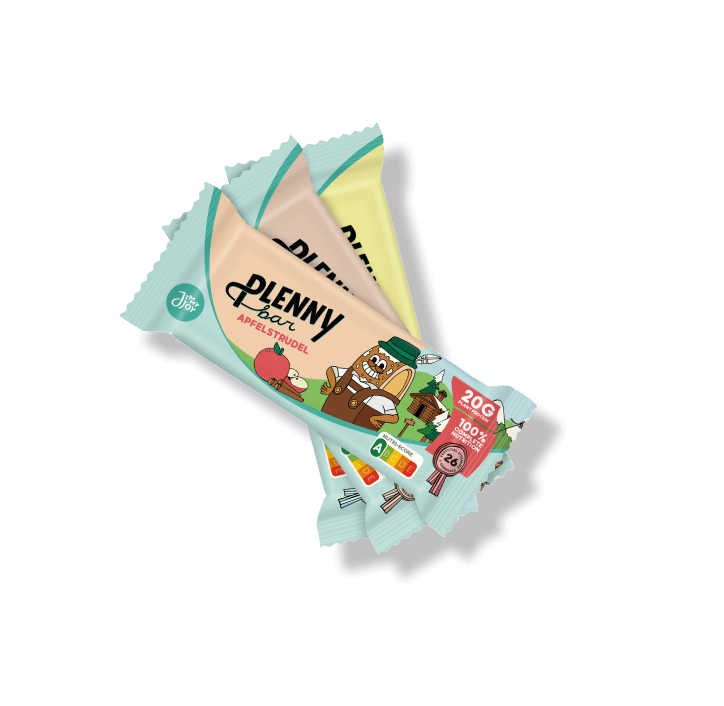
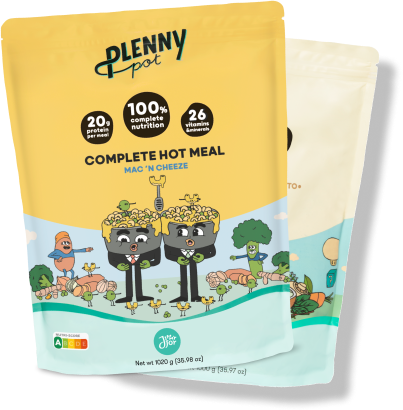

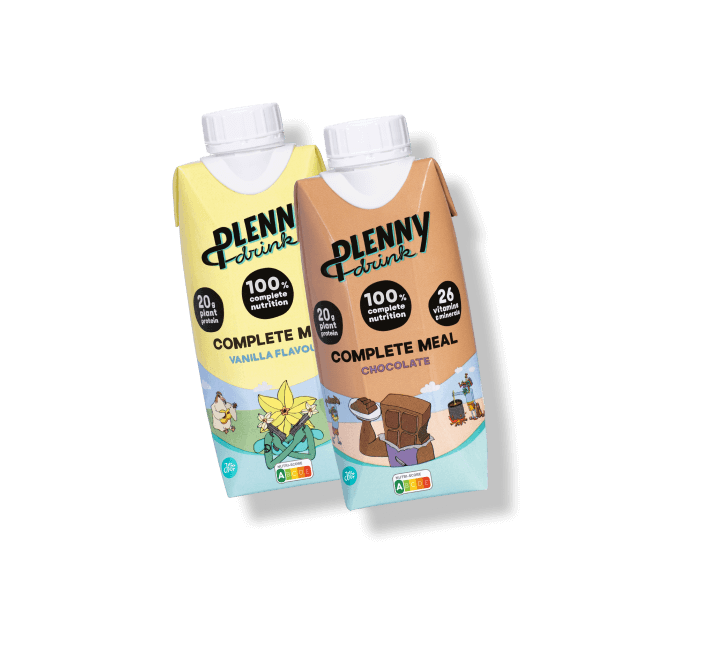
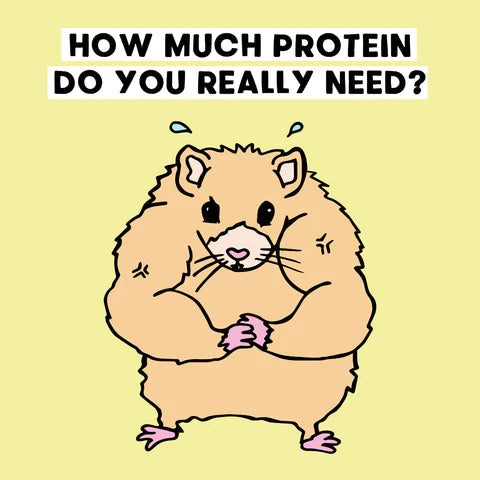




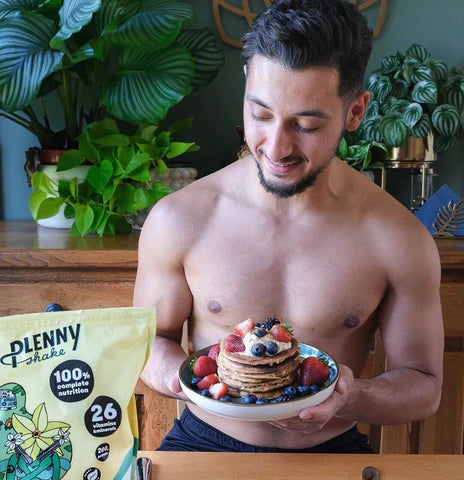



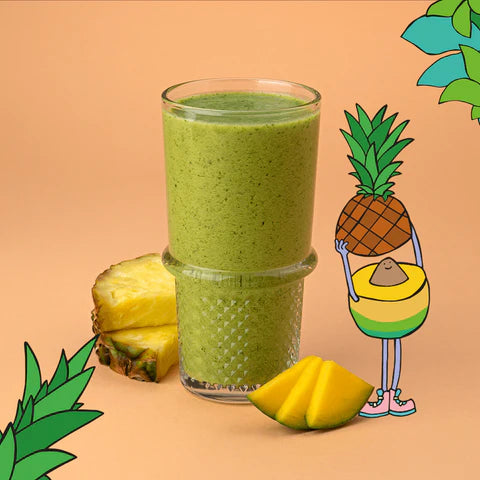


 Product added to cart
Product added to cart



